COVID-19 vaccine hotlines plagued with problems, Team 12 investigation finds
Long waits on hold. The inability to schedule vaccine appointments. And appointments offered hundreds of miles from home. Those are just some of the problems News 12 Senior Investigative Reporter Walt Kane heard as he investigated the state-run COVID-19 vaccine hotlines.
•
Mar 19, 2021, 6:12 PM
•
Updated 1,594 days ago
Share:
More Stories
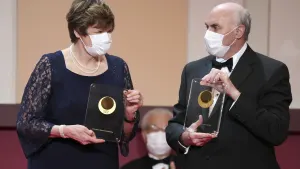
Nobel in medicine goes to 2 scientists whose work enabled creation of mRNA vaccines against COVID-19
667ds ago1:25
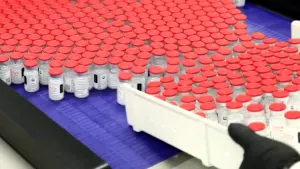
Pharmacies say they have not received orders for newest COVID booster
672ds ago0:21
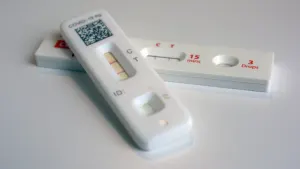
Biden administration announces $600M to produce COVID tests and will reopen website to order them
679ds ago0:41
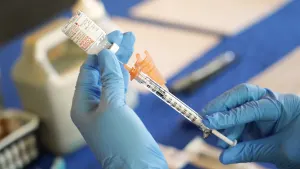
Gov. Hochul: Updated COVID-19 vaccine to be available in NY in the coming days
686ds ago2:13
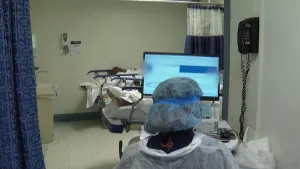
NYSDOH: COVID numbers up with new variant accounting for 17% of new cases
720ds ago2:30
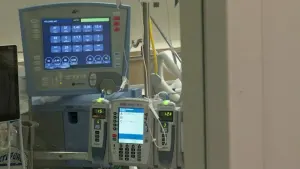
NYSHD: Hospitalizations caused by COVID increase by 22% in a week
728ds ago
Nobel in medicine goes to 2 scientists whose work enabled creation of mRNA vaccines against COVID-19
667ds ago1:25

Pharmacies say they have not received orders for newest COVID booster
672ds ago0:21

Biden administration announces $600M to produce COVID tests and will reopen website to order them
679ds ago0:41

Gov. Hochul: Updated COVID-19 vaccine to be available in NY in the coming days
686ds ago2:13

NYSDOH: COVID numbers up with new variant accounting for 17% of new cases
720ds ago2:30

NYSHD: Hospitalizations caused by COVID increase by 22% in a week
728ds agoLong waits on hold. The inability to schedule vaccine appointments. And appointments offered hundreds of miles from home.
Those are just some of the problems News 12 Senior Investigative Reporter Walt Kane heard as he investigated the state-run COVID-19 vaccine hotlines in New York, New Jersey and Connecticut.
"If you get called for an appointment, it's like a lottery," says New Jersey native Maria Holz. "You've hit the lottery." She and her husband are in their late 60s, and he has heart and lung disease. Every day for two months, she's tried to schedule vaccine appointments through various methods, with no success.
She tried New Jersey's vaccine hotline a few times but was told they could not even schedule appointments, a situation the state says has now been fixed. The answer left her flabbergasted.
"Is that like a feel-good line where you call and they try to make you feel better about not getting an appointment?" she says.
Many residents at a retirement community in Whiting, New Jersey don't have computers and say depending on the hotline has left them frustrated.
"The people here, they can't be up at midnight trying to find appointments online," says Rosie Weaver, 78.
The New Jersey Department of Health says it froze scheduling by phone on Feb. 10, because operators were double-booking appointments.
"We needed to streamline the system on the agent end to prevent scheduling errors, and also offer further training to the agents so that they can best meet your needs," New Jersey Health Commissioner Judith Persichilli said at the time.
It would take nearly a full month for the hotline to "unfreeze." And callers weren't the only ones frustrated.
"It doesn’t seem like anything I can do is even helpful," said one call center employee. He asked Team 12 Investigates not to reveal his identity for fear of losing his job. Unable to even see the vaccine scheduling screen for four weeks, he said he would often lay awake at night.
"I'm like, 'Well, maybe I could have done this. Or maybe I could have done that.' And honestly, I really couldn't do anything," he says.
New Jersey recently lifted the freeze on phone appointments, and on March 17, the NJDOH announced the centers were "fully operational."
But the freeze had an impact. People over 65 account for 80% of COVID deaths, but in New Jersey, they've gotten just 42% of vaccines. And Team 12 Investigates has heard complaints from across the region from people who say the system has left them behind.
In New York, people could make vaccine appointments by phone all along. But many gave up after enduring hours on hold.
"I just called a couple of times, I was put on hold," says William Betts, of the Bronx. "Then I tried a couple more times, couldn’t get through that day, tried a couple of times a couple days after, still couldn’t get through."
Others were given appointments far from home. Lynn Collins of Greenburgh says she was offered one in Plattsburgh, 295 miles away. That's a nine-hour round trip.
"Vaccines only work if you can get them," says Evelyn Liebman, Director of Advocacy for AARP. "And if the system is putting up roadblocks preventing people from actually making an appointment, then in effect, they're not being prioritized."
Team 12 could not quantify how much New York's hotline might be impacting seniors because New York is one of 15 states that do not report vaccine distribution by age.
Connecticut also offers vaccine appointments by phone. There were reports in January of people waiting on hold for hours, but that state let callers leave their numbers and get called back. That, coupled with strict age limits, seemed to do the trick. In Connecticut, 71% of vaccines have gone into the arms of people over 65. In Connecticut, seniors received such a high priority that Team 12 received complaints from younger residents with compromised immune systems, who felt the system was unfair to them.
Team 12 decided to put the NJDOH's recent claim, that its phone hotline is once again "fully operational,” to the test. With the cooperation of a resident who recently qualified for a vaccine, Senior Investigative Reporter Walt Kane and his producer each tried to make an appointment, using both the website and the hotline.
Using the online system, Kane was offered an appointment in under a minute. It was in two days, at a location just 15 minutes away. Using the hotline, his producer was on hold for 23 minutes, then was offered an appointment next month, at a location nearly 90 minutes away.
The unscientific test would appear to indicate that while the hotline can once again make phone appointments, those who depend on it may still be at a significant disadvantage to those who can book appointments online.
More from News 12
1:31

What's Cooking: Uncle Giuseppe's Marketplace's prime rib roast
1:27

What's Cooking: Uncle Giuseppe's quiche lorraine
2:34

Guide: Safety tips to help prevent home burglaries
2:19

Guide: Safety measures to help prevent fires and how to escape one
2:07

Tips on how to avoid confrontation with sharks while swimming in the ocean
2:33
